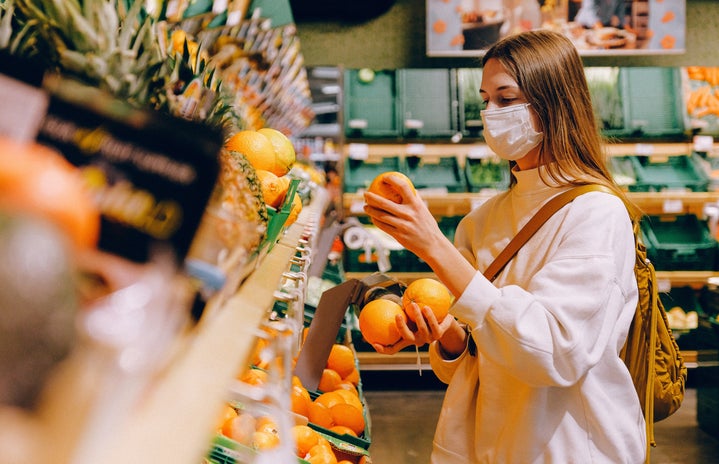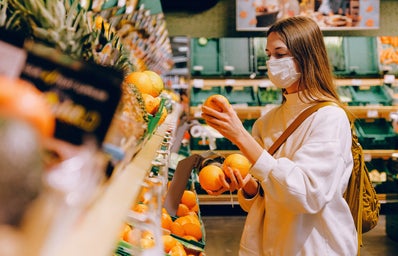On March 11, 2020, the world was rocked by the global pandemic of COVID-19. It has cost jobs, loved ones, food and our mental health. It had been the first economic recession in the United States since the Great Recession of 2007. The subject that is most alarming amid a variant uproar in this pandemic is food insecurity. Merriam-Webster defines food insecurity as the fact or an instance of being unable to consistently access or afford adequate food. Even with resources available, many individuals have no access after testing positive to COVID or do not know of ways that certain sources are there to help. How can we help? How can we as individuals look out for one another and reduce this problem exponentially? By addressing the issue.
According to Feeding America, it is projected that in 2021, 42 million people (1 in 8), including 13 million children (1 in 6), would experience food insecurity. Many people who have been most impacted by the pandemic were food insecure or at risk for food insecurity before COVID-19 and continue to face greater hardship. Even racial disparities in food security that were existing before the pandemic are still an issue. Feeding America projected that 21% of Black individuals (1 in 5), would experience food insecurity in 2021 in comparison to 11% of white individuals (1 in 9). It was interesting to find out that the year before the pandemic, in 2019, the overall rate of food insecurity was the lowest it had been in more than twenty years. While the overall poverty rate in 2019 was 10.5%, poverty among white individuals was 9.1% compared to 18.8% for Black individuals and 15.7% for Latino individuals. More research is needed to determine the more complex relationship between systemic racism and food insecurity. The numbers don’t lie, but when we read statistics does it make us want to implement a change of plan right away?
Let’s put the statistics to a story, my mom is a part of a Facebook group called CWU Parents for the Central Washington University parents to keep in touch and ask questions from other parents. One night she was scrolling through Facebook and a random picture of a can of Pork and Beans popped up on her feed with a long caption. Weird, right? The post read,
“I am just furious right now. My daughter has COVID, she tested negative before she went back to school but is now positive. She is in the dorm for quarantined students. They refused to bring her food today and told her she has to wait till tomorrow. Told she could not have food. After many calls, they brought her food. Two cans of pork and beans, no can opener and no way to cook it outside of it being disgusting. Also, ramen and candy. I can not believe that my child has to endure this when she is sick. Who can I talk to about this? Can you imagine if this was your child? I am just sick over here.”
Hearing this and reading it made me sick to my stomach. What if this was me? My friends at school? Or anyone who was stuck and couldn’t get access to the proper food while dealing with COVID-19? This had me floored. Universities are not implementing the proper plans when it comes to students that test positive. As for dining services, they should be utilizing the resources of our student-run food pantry PUSH. As students and faculty, we should be coming together to put a plan in place to provide the right nutrition to those who are dealing with COVID and the hardships that are following it. If your mind is racing like mine, you are trying to find a way to help.
There are ways. Give back to your local food bank if you are willing and able. That food will get put to good use for someone who is in need. It can be at your university, local food bank in town, church or any other place that is taking donations to help. Help someone who is struggling from COVID and stuck in quarantine, be their delivery system, its so hard when your are stuck in that situation and you are confined to your space with no access to a store. Don’t let a friend or loved one go days without food. The only way can we help is by being a part of a change in the system and reaching out. Do your part and help when you can. Help one another.


